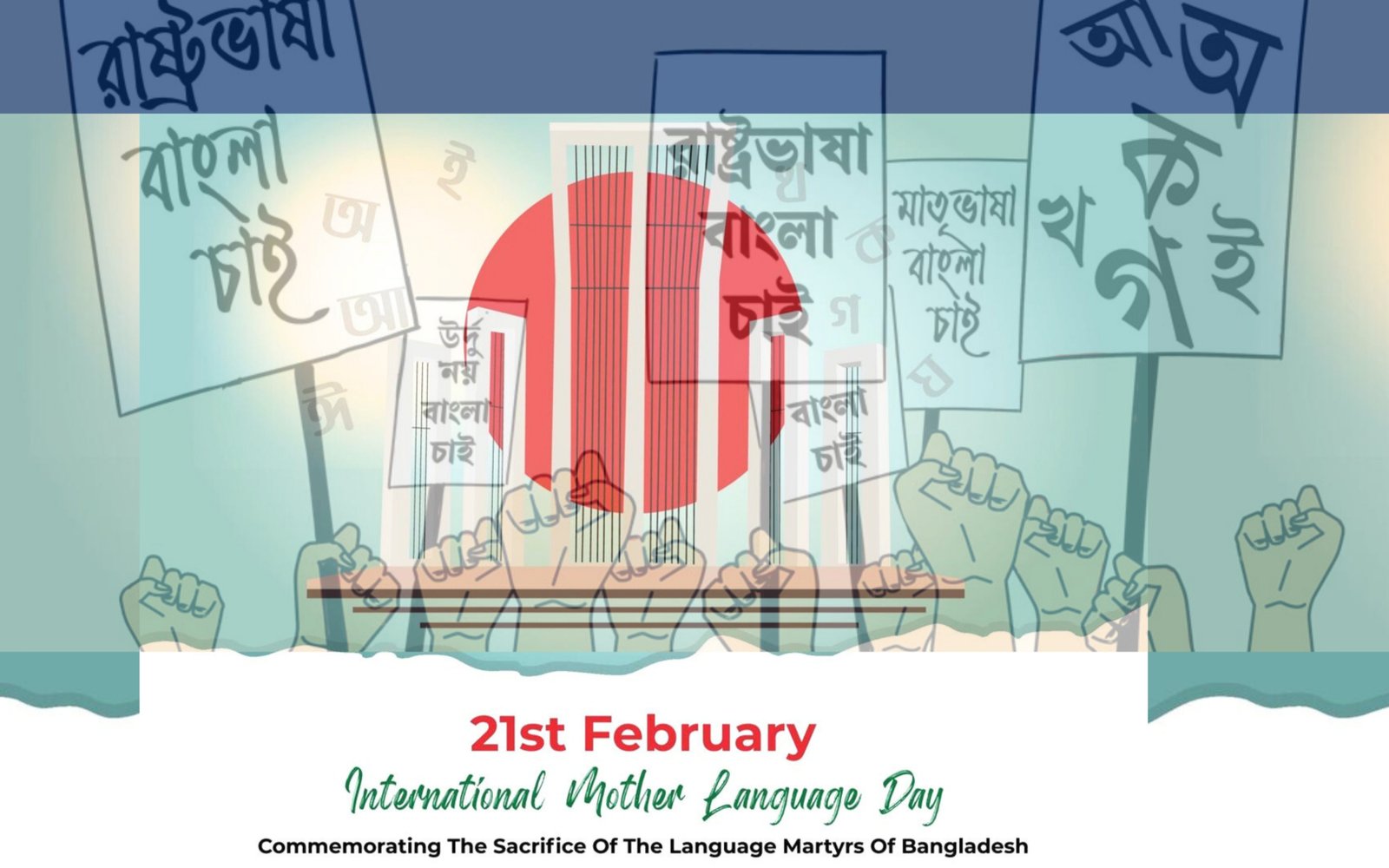February 21: International Mother Language Day and the Glorious Struggle for the Rights of Bengalis Worldwide
February 21 holds an indelible mark in the history of the Bengali nation. In honor of the martyrs who sacrificed their lives to protect the dignity of the Bengali language, this day is celebrated globally as International Mother Language Day. On February 21, 1952, the Bengali nation first protested against colonial rule to establish the right to their mother language, which later became the foundation for the Language Movement and the Liberation War. On that morning, students from Dhaka University defied the Section 144 curfew and took to the streets, leading the police to open fire on them. As a result, several students and young people, including Abul Barkat, Abdul Jabbar, and Abdus Salam, were injured or killed. In protest of this incident, angry Dhaka residents gathered at the Dhaka Medical College Hostel. Despite various forms of oppression, both students and ordinary people took to the streets again on February 22. They participated in a silent funeral prayer for the martyrs in the compound of the Medical College Hostel. To immortalize the memory of the language martyrs, a memorial was erected on February 23 overnight at the Medical College Hostel grounds.
February 21: International Mother Language Day and the Glorious Struggle for the Rights of Bengalis Worldwide
February 21: International Mother Language Day and the Glorious Struggle for the Rights of Bengalis Worldwide
February 21 holds an indelible mark in the history of the Bengali nation. In honor of the martyrs who sacrificed their lives to protect the dignity of the Bengali language, this day is celebrated globally as International Mother Language Day. On February 21, 1952, the Bengali nation first protested against colonial rule to establish the right to their mother language, which later became the foundation for the Language Movement and the Liberation War. On that morning, students from Dhaka University defied the Section 144 curfew and took to the streets, leading the police to open fire on them. As a result, several students and young people, including Abul Barkat, Abdul Jabbar, and Abdus Salam, were injured or killed. In protest of this incident, angry Dhaka residents gathered at the Dhaka Medical College Hostel. Despite various forms of oppression, both students and ordinary people took to the streets again on February 22. They participated in a silent funeral prayer for the martyrs in the compound of the Medical College Hostel. To immortalize the memory of the language martyrs, a memorial was erected on February 23 overnight at the Medical College Hostel grounds.
After the creation of Pakistan in 1947, 14 language heroes, including contemporary politicians, drafted a 21-point memorandum demanding the recognition of Bengali as the state language. Sheikh Mujibur Rahman took the initiative to sign this memorandum, and later, the students began their struggle. On March 24, 1948, during a convocation ceremony at Dhaka University’s Curzon Hall, Muhammad Ali Jinnah categorically rejected the demand to establish Bengali as the state language, saying, "The state language of Pakistan will be one, and that will be Urdu, as only Urdu reflects the Muslim identity of Pakistan."
Jinnah’s statement created a strong reaction at the convocation, and the students stood up, protesting by chanting “No, No.” This firm stance by Jinnah further gained acceptance for the language movement in East Pakistan. The self-sacrifice of these students ultimately led to the establishment of Bengali as the state language.
In 1999, UNESCO recognized February 21 as International Mother Language Day. Then, in 2010, the United Nations General Assembly adopted the proposal to observe it as International Mother Language Day, which brought the glory of Bengali to the global stage.
Today, the Bengali language is honored not only in Bangladesh but around the world. Through the poetry of Nobel laureate Rabindranath Tagore's Gitanjali, the Bengali language opened new horizons on the world stage. In 1974, when Sheikh Mujibur Rahman delivered a speech in Bengali at the United Nations, it further demonstrated the global significance of the language.
The importance of the Bengali language is growing every day. Currently, there are Bengali departments in 100 universities across 30 countries. Various countries and peoples are increasingly interested in Bengali literature, culture, history, and language learning.
Bengali is now one of the world’s powerful languages. Apart from Bangladesh, countries like India, Sierra Leone, and Australia have recognized Bengali as an official language. The popularity of Bengali is rising in Europe, America, Africa, and Asia.
February 21 is not only the day of the Bengali Language Movement but also a symbol of the struggle for language, culture, and rights around the world. The spirit of February 21 is spreading globally, where the struggle to protect the right and dignity of the mother tongue continues tirelessly.
On this day, wreaths are placed at the Shaheed Minar, black badges are worn, and discussions and cultural programs are held to honor the glorious history of Bengali. This day is indeed a timeless symbol of the importance of language and the protection of rights on the global stage.
In this way, the Bengali language is gaining recognition and respect worldwide, and February 21 has become a proud day for the Bengali nation and an invaluable part of International Mother Language Day. ✍️ Report Prepared By: Fozla Rabbi Robna










